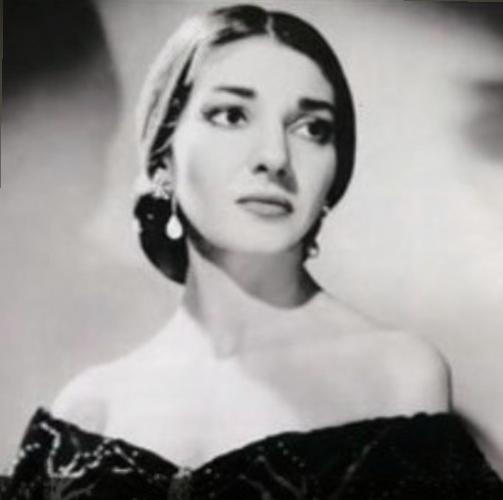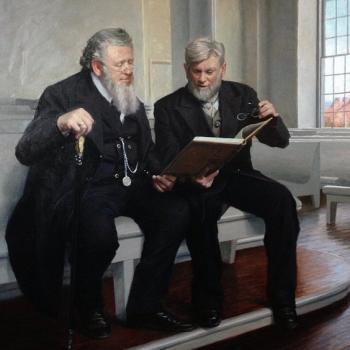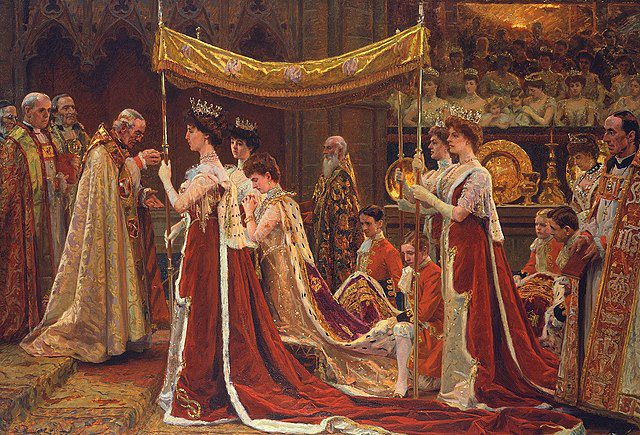
(Wikimedia Commons public domain photo)
Driving up to the opera Friday evening after a fairly unpleasant day spent on such absorbing matters as flu vaccinations and the sudden and complete failure of our 4.5-year-old refrigerator, I found myself thinking, as I surprisingly often do, of the oddities of English spelling.
I think that it started when I saw a group of hundreds of birds sitting on a wire running parallel to I-15, and I thought of the Leonard Cohen lyric Like a bird on the wire, like a drunk in a midnight choir, I have tried in my way to be free.
Wire rhymes with choir.
First, I began to think of the various ways of representing the sound -ire in the word wire.
There’s ire itself, for one. Meaning “anger.”
And dire, fire, hire, mire, sire, tire, and, yes, wire.
But then there are byre (a cowshed, in the United Kingdom), gyre, lyre, pyre, and (in Britain) tyre.
Buyer?
And choir, obviously. A choir? Acquire?
Cryer? Dryer?
Flier? Flyer?
Pliers.
If flier and flyer sound the same, why doesn’t bier sound like buyer or byre?
higher? Nigher (meaning “nearer”)?
Liar.
Meyer? Mayer? Meier? Maier?
Then my reflections went a bit further: One of my sons is fond of the weird spelling of the word one. Who would ever predict, how could you have guessed, that it should be pronounced like won? And, anyway, shouldn’t won be spelled wun, to rhyme with fun? Since when does o sound the same as w? And how in the world does -ne come to sound like -un?
Add a d- to -one, however, and you get done. Which sounds the same but isn’t the same as dun.
Replace the d- with a thr- and you get throne. Which sounds like thrown.
Which rhymes with bone, cone, hone, lone, tone, and zone. And with blown. And with sown. And with sewn.
But which doesn’t rhyme with done or none.
Replace the –l- of blown with an –r- and you get brown.
And gone? Where did that come from? It rhymes with neither done nor tone.
I won’t even mention the familiar -ough, which shows up in bough, cough, dough, tough, thought, and through.
And this kind of thing can go on virtually forever. (E.g., for, fore, and four. And to and too and, curiously, two [with its silent internal w].)
***
We saw a quite satisfying Friday night performance by the Utah Opera (with some help from members of the Ririe-Woodbury Dance Company) of Giuseppe Verdi’s 1853 La Traviata, which, of all the operas that I’ve seen, may be the one that consistently moves me the most. (Puccini’s La bohème is probably its only real rival in that regard. As we walked out, I heard a man say “That’s my favorite opera. That and La bohème.” I fought off the impish urge to turn and ask him, “So, you get some sort of charge, do you, out of watching young women die of tuberculosis?”) Anya Matanovič was very, very good as the doomed Violetta Valéry. Somewhat refreshingly for opera, she even looked right for the role. I also thought that Michael Chioldi was magnificent as Giorgio Germont, the father.












